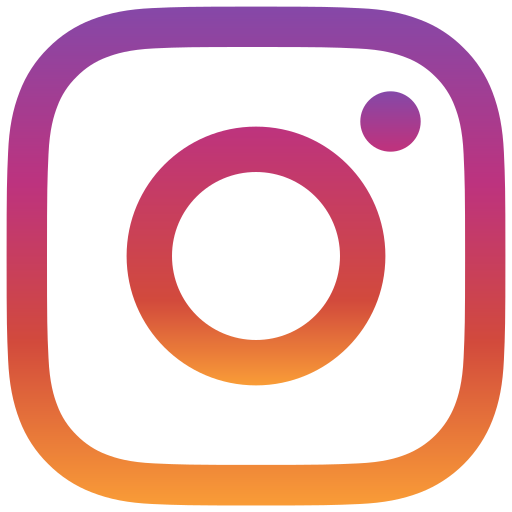Female Pleasure Has Been Stigmatized by the Internet For Too Long
It's 2021. Self Pleasure and Sexual Education shouldn't be taboo anymore. Yet, the big corporations policies keep stigmatizing it and pushing it away like it's something dirty, unwanted, and something we shouldn't see. Sex is everywhere in advertising. We're almost blind to it. However, when you're trying to sell/talk about actual female and LGBTQI sexual pleasure, suddenly a line is crossed.
Join us in this crusade to ask these big companies why, and ask them to reconsider their policies.

SEX SELLS, BUT ONLY WHEN YOU TARGET MEN
Content Restrictions
- Sex-Ed Content
- Female Sexual Content
- Adult Products
- Sexual Health Products

Facebook policies prohibit the promotion of adult products unless they “promote family planning and contraception”; a vague statement that is open to interpretation by policy enforcers, often resulting in male sexual wellness content being promoted while female content is blocked.
According to Facebook's guidelines, no full or partial nudity is allowed (including nipples and bare buttocks), except for breastfeeding or breast exams content. You won't get away with depictions of sex toys, or any sexual activity even if all the people involved are clothed. Fetish content won't also make the cut. As for sexually-suggestive content in the broader sense, it's only allowed if it's somewhat leaning towards satirical, humorous, educational or scientific content. Greater permission may be granted if any of those are portrayed in a health context, that's how some brands manage to show you ads for products that would otherwise be banned according to the general guidelines.
You should also be aware that Facebook may apply their own rules unevenly, and that some content that was previously approved may lead to your account being banned after a while.
Link to Facebook's guidelines about sexual content:
https://www.facebook.com/communitystandards/adult_nudity_sexual_activity/

Instagram will not show “sexually suggestive” content in hashtag searches or Explore pages as they refer to this content being "borderline" without ever explaining in their regulations what "borderline" truly means. Instagram will only investigate an account following a complaint and will take action without any appeal process. Any artistic photos or videos, if containing nipples for example, will not be allowed, so the best way would be to blur the "borderline" content. Photos of post-mastectomy scarring and women actively breastfeeding are allowed, as well as nudity in photos of paintings and sculptures.
You should also be aware that Instagram may apply their own rules unevenly, and that some content that was previously approved may lead to your account being banned after a while.
Link to Instagram's guidelines about sexual content:
https://help.instagram.com/477434105621119?sTZh6%2Fref=nofollow%2F&Author=Brian%20Whalley

YouTube monetization and advertisements are crucial for all creators. They incentivize creators to take valuable time out of their days to craft engaging and educational content for their viewers. Considering the lack of sex education in schools, YouTube is considered a platform where content creators can educate their viewers about valuable topics like sexual health awareness, sexual wellness, consent, gender and sexuality, etc.
However, those creators will likely encounter complete demonetization of their channel. Furthermore, sex education vloggers have also been reporting “shadow-banning,” a process whereby YouTube limits the visibility of certain videos and content on the platform, diverting viewership away from specific channels.
Link to Youtube's Nudity guidelines:
- Erectile Dysfunction Medications
- Non-Adult Products with Sexual Imagery

Facebook grants permission for any Erectile Dysfunction content to be posted, such as Viagra ads, without any restrictions. If your brand is not related to adult products, you may find that sexually-suggestive imagery (more or less within the boundaries of Facebook's guidelines) will still be authorized, even when the content can be judged to be borderline.

Companies that try to market female sexual wellness products through Facebook and Instagram frequently have their posts and pages banned. Meanwhile, male-centric advertisements that are a lot more explicit don’t face the same challenges.
For instance, Playboy has millions of followers, and they regularly post content objectifying female bodies in various states of undress, yet don't suffer from under-exposure.
Erectile dysfunction medications are given free rein on the platform, allowed to pass off as a medical or health product. But lubricants for vaginal dryness or menopause medications are blocked while being submitted to the same rules.

While sex educators are bound to get their channels completely demonetized, and adult products are diligently banned from any type of advertising, the same can't be said for hate groups.
Recently, queer YouTubers realized that YouTube was running anti-LGBTQI and conversion therapy ads alongside videos made by LGBTQI creators. Apparently, anti-LGBTQI organizations (liked Alliance Defending Freedom) could create advertisements to target queer users based on their usage patterns. It essentially meant that proponents of harmful and discriminatory practices like conversion therapy could specifically target the most vulnerable queer individuals trying to find answers in videos created by LGBTQI YouTubers.
In its existing form, YouTube videos that promote safe sex and sexual awareness are liable to get demonetized while simultaneously being targeted by hate groups.
Change Through Education
Listen to the Experts

“Advertising platforms are shooting themselves in the foot with gender-biased sextech bans. The ability for female-founded sexual health and wellness brands to advertise and therefore to scale, unlocks the ability to raise serious funding from venture capitalists and investors in search of unicorns, which in turn guarantees serious revenue for those platforms. There's a huge amount of money to be made out of taking women seriously - especially when it comes to sex.
Every investor and venture capitalist should be joining and supporting this campaign. Erectile dysfunction solution platforms Roman and Hims both launched in 2017. Each has consistently raised huge amounts of money from male venture capitalists (Roman $376 million, Hims $297 million) taking both to unicorn valuations (Roman $1.5 billion, Hims $1billion) in just three years - because they were able to spend huge amounts of money on advertising to grow.”
Cindy Gallop, advertising expert, and founder and CEO of Make Love, Not Porn

"Sexual pleasure is vital to both our sexual and our overall health. Using sex toys is not only common, but people who use vibrators are more likely to see a medical provider and have better sexual function*. Sexual pleasure is neither gratuitous nor unnecessary. Lack of advertising in the sexual health and wellness space prevents people (regardless of gender, sexual orientation, disabilities, or relationship status) from the getting the information and services they need, as well as creates a culture of shame around sex. Shame has never been good for our emotional or intimate lives. We can (and should) do better."
*Herbenick D, Reece M, Sanders S, Dodge B, Ghassemi A, and Fortenberry JD. Prevalence and characteristics of vibrator use by women in the United States: Results from a nationally representative study. J Sex Med 2009;6:1857–1866.
Dr. Logan Levkoff, AASECT Certified Sex Educator and Sex Educator Supervisor.

A generation ago, smart women found a way to achieve gains in women’s sexual health for which they had long fought. Prescription contraception was not largely covered by insurance for about 40 years — until Viagra was introduced in 1998 and quickly covered. Women’s groups then showed it was discriminatory to cover Viagra but not prescription contraception.
Today, old erectile-dysfunction patents are expiring, enabling a new wave of innovation and E.D. start-ups. They’ve been accompanied by mass advertising, not the wink-and-nod advertisements of decades ago, but ads that are more explicit than ever. And so it’s time once again to point out double standards and demand improvements in women’s lives. I, for one, am fine with walking onto the subway and seeing giant penises depicted as cactuses in erectile dysfunction ads; I would simply like to see some papayas alongside them.
Jackie Rotman, Founder & CEO of Center for Intimacy Justice





Have you been affected by an unfair content ban on Social Media, or have you seen an ad, article or brand that has been allowed to advertise their product in a sexist way? Let us know here and we'll make sure to publish it.

















Carrie Lyell, Editor-in-chief, DIVA Magazine
We won't be erased
Lesbians and bisexual women are all too familiar with censorship. From websites like ours frequently blocked by filters in schools, universities and other public settings, to retailers putting DIVA on the top shelf beside the pornography – or refusing to display the magazine at all because we don't fit their "family friendly" image – the message is clear: our lives, loves and desires are shameful and something to be hidden away. But we won't be erased. We will continue to exist loudly and proudly, kicking back against the toxic combination of misogyny and homophobia, because lesbian is not a dirty word.
Claire Cache
Platforms are not helping us in any way
Being a sex educator on Twitch is no easy feat, as the rules are still unclear and shadow-banning has yet to make its appearance, but showing any realistic type of adult products can be challenging, if not completely frowned upon. On top of that, the latent sexism female streamers can be subjected to, from a niche of close-minded male viewers, doesn’t seem to get much attention or help from the platform itself, leading to women self-censuring themselves or completely quitting their channels.
Jenn Doan
It’s a constant struggle
It’s a constant struggle of “will my account be deleted today?” 🤷🏼♀️